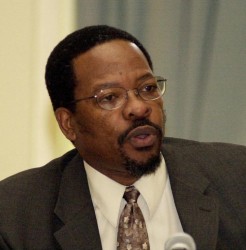Months prior to the May 11 general elections which saw APNU/AFC coalition assume office President David Granger, in his capacity as leader of the opposition coalition had taken his campaign to the diaspora, asserting his belief that it was to that constituency that a new political administration would have to look to recruit much of the skills necessary to plan and execute a national development programme.

The available evidence suggests that there has been an encouraging response to the signals sent by the new administration to qualified and in many instances well-positioned Guyanese in the diaspora. Recently a number of United States-based professionals including economists and business experts have travelled to Guyana to engage local public and private sector officials and to articulate their thoughts on “strategies to jump start and promote economic development in Guyana.” Indeed, two weeks ago, newly elected Chairman of the Private Sector Commission (PSC) Major General (rtd) Norman McLean told this newspaper that experienced and qualified Guyanese in the diaspora are expected to form part of the planning and execution team for a national economic forum scheduled to be held in September.
Last week, Stabroek Business was given access to a four-page document to which a number of Guyanese professionals living and working in the diaspora have affixed their signatures and which, this newspaper understands, is intended to form the basis of discourses with the President on government’s economic plans and programmes and the role that the diaspora can play in their realization. The document, this newspaper understands, is also likely to help shape the agenda for the forthcoming national economic forum that is currently engaging the attention of the PSC.
Apart from outlining a range of strategies designed to promote economic development, the document “strongly recommends” an extensive job-skills training programme that targets, primarily though not exclusively, the health sector, the implementation of a countrywide programme of health, education, youth empowerment, leadership and mentoring programmes across the country.

Additionally, the paper envisages the creation of an agricultural technology transfer programme in collaboration with the University of Guyana and a technology and vocational education training programme “that emphasizes digital skills and entrepreneurship” which it says, are required if Guyana is to achieve significant economic development. “We expect that these programmes will attract 3,000-5,000 trained teachers for our school districts across Guyana,” the diaspora group says in the document.
And according to the four-page document, while the country’s mineral and agricultural sectors had brought it “very modest growth” over the past two decades, if Guyana is to realize a level of growth that will contribute meaningfully to poverty reduction “we have to develop innovative strategies and new approaches to enhance our manufacturing capacity and our agricultural export product diversity… In addition, we have to identify new markets for our mining, forestry and agricultural products, develop innovative digital technology that includes broadband delivery and telecommunications, cyber security applications and develop the digital circuit designs that will impact these IT applications.”
Meanwhile, the diaspora document advocates the creation of “new partnerships with both local and overseas private sector entities” as a vehicle for successful realization of the country’s economic and infrastructure development goals.
And the diaspora group says that the successful realization of the country’s economic and infrastructure development goals in the short and long term will require the establishment of new partnerships with local and overseas private sector entities who are able to provide the investment capital necessary to subsidize the financial contributions which the Guyana Government makes in the respective sectors.
According to the diaspora group while China is currently one of the largest investors in the region, the government needed to “insist that agreements with the Chinese investors include effective technology transfer (for electronic digital circuit design that utilize electronic clean room facilities) and modern manufacturing computer-aided equipment for our hardwood furniture factories.” Another major concern, the document says, “is that Chinese investments are not creating sufficient jobs for our local workers and do not currently support open markets and transparency and environmental concerns.
Further recommendations from the diaspora group include the need to strengthen the country’s fiscal policies in order to further attract foreign investment and promote sustainable economic development in the respective sectors without simply exploiting our natural resources purely as cheap supply sources for raw materials.
“We need to address racial/social policies and the associated political issues by stimulating public debates on fiscal and economic matters to provide potential solutions,” it said, adding that this can be achieved “by identifying and organizing local community leadership and providing the economic support for local infrastructure development and job-promoting projects that are defined and implemented by members of the individual regional communities.”
The signatories to the document include Senior Fellow of the American Association of State Colleges and Universities Dr Ivelaw Griffith; former Head of the Guyana Office for Investment Dr Ivor Mitchell; former senior State Planning Secretariat official and business expert Dr Hector Butts; Dr Claudette Heyliger-Thomas; Dr Carla Crawford; Dr Joan Liverpool; Senior Director, Portsmouth, United States Department of Energy Dr Vincent Adams and Associate Professor, Anatomy, Morehouse School of Medicine, Dr Kelwyn Thomas.
Discussions in Georgetown last week have given rise to an initiative that seeks to establish a wider formal network of Guyanese domiciled in the diaspora who are both equipped and disposed to being part of a concerted effort to help fashion a development direction for Guyana.




